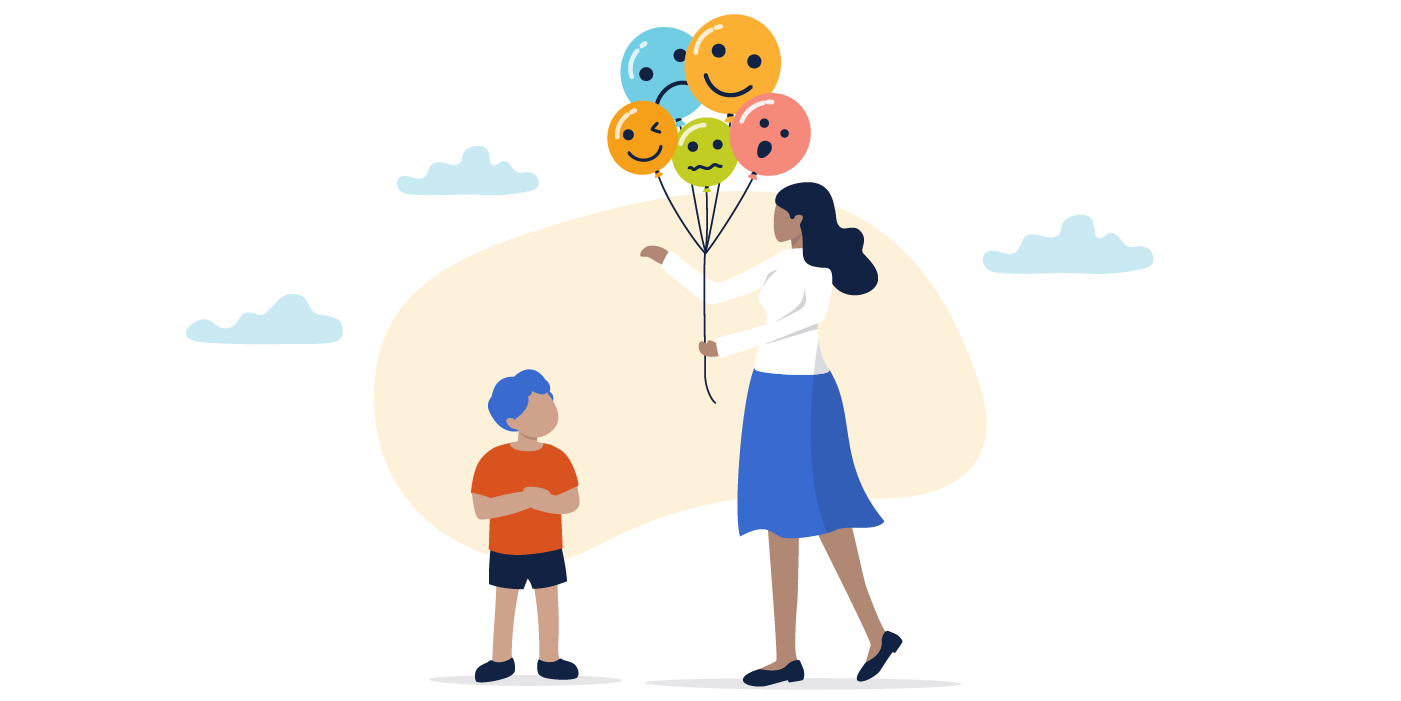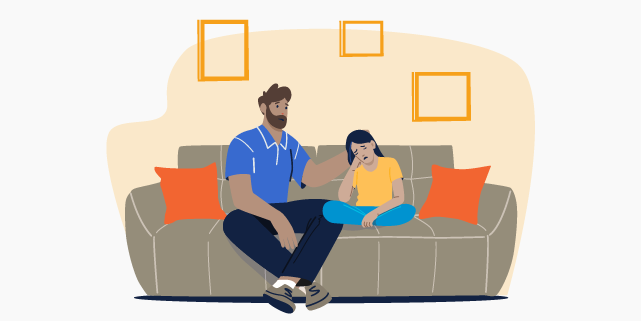The Impact of Parental Burnout
 In 2018, Isabelle Roskam, PhD, and her colleagues developed a measurement called the Parental Burnout Assessment after surveying more than 900 parents they had determined to be experiencing burnout. From these subjects’ testimonies, the researchers extracted four dimensions of parental burnout: exhaustion in one’s parental role, contrast with previous parental self, feelings of being fed up with one’s parental role, and emotional distancing from one’s children.
In 2018, Isabelle Roskam, PhD, and her colleagues developed a measurement called the Parental Burnout Assessment after surveying more than 900 parents they had determined to be experiencing burnout. From these subjects’ testimonies, the researchers extracted four dimensions of parental burnout: exhaustion in one’s parental role, contrast with previous parental self, feelings of being fed up with one’s parental role, and emotional distancing from one’s children.
Recognizing parental burnout
As with job burnout, parental burnout symptoms build on each other; the phase one exhaustion sticks around through the distancing and loss of fulfillment. As a result, Roskam said, parents with burnout typically report a contrast between the parents they were, the parents they would like to be, and the parents they have become. This contrast, she added, can cause burned-out parents to feel inescapable distress, shame, and guilt.
As common as parental burnout is, parents can use what psychologists have discovered about risk factors to both reduce their risk and mitigate existing symptoms by finding creative ways to rebalance their stress and resources.
How to Manage Parental Burnout
Talk about it
Open sharing about feelings of burnout can facilitate social support, a much-needed resource for stressed-out parents short on coping skills. But admitting you’re struggling isn’t always easy; burned-out parents often feel isolated and ashamed, which can prevent them from healthy dialogue with supportive people.
If your burnout is impairing your functioning or causing suicidal ideation, it’s important to reach out to a mental health provider for professional support.
Reevaluate your stress
For parents who reported higher levels of burnout during the pandemic, lockdown alone wasn’t the primary risk factor. Instead, a team composed of Belgian, Dutch, and U.S. researchers found that cognitive appraisal—people’s individual perspectives of the lockdown—was also to blame.
Reappraisal won’t expunge the difficult circumstances from your life, but it can provide a resource to help you cope.
Make small changes
Parental burnout can hit particularly hard because, unlike occupational burnout, it’s not always possible to take a vacation—which may leave you feeling like you can’t escape the stressor.
Rather than fixating on the big stressors, Mikolajczak advises rebalancing the changeable ones that contribute to your feelings of exhaustion over time. For example, if your chore list exhausts you, offload a few jobs to your partner or kids.
Grow your parenting skills
While Roskam said reading books about parenting can increase feelings of failure and shame for many, other resources can provide a much-needed confidence boost in parenting by providing targeted skills. Look into local seminars, ask about mental health and parenting resources at your child’s school, or find a therapist who uses evidence-based behavioral training programs for parenting.
Stop saying ‘should’
Natalie Dattilo, PhD, commonly recommends her patients avoid “should” statements, which she says add shame. For example, if you’re overwhelmed and tell yourself you “should” spend more time playing with your kids, you’ll only feel badly when you don’t measure up. Try swapping your “should” statement with “It would be great if I had more energy to play with my kids.”
Take microbreaks
Self-care is a vital component of recovering from any type of stress, but it’s not necessarily realistic for everyone to plan a kid-free getaway to recover.
When you take breaks, try to find small ways to recalibrate your thinking. Acknowledge the pressure you may put on yourself for how you should be doing or feeling and remind yourself that you’re doing the best you can with the resources you have.
Find meaning
Even if it feels overwhelming, practice behavioral activation by planning a small, low-stakes activity—a trip to the park or watching a favorite movie—to do with your kids. Remind yourself in the experience or debrief after about your kids’ positive qualities, as well as the skills and qualities you bring to the table as a parent. Remembering the meaning you’ve felt in the past as a parent can provide a resource when exhaustion and resentment return.
Excerpted from “The impact of parental burnout” from the American Psychological Association. Read the full article online for additional details.
Source: APA | The impact of parental burnout, https://www.apa.org/monitor/2021/10/cover-parental-burnout | © 2022 American Psychological Association
A screening can help you determine if you or someone you care about should contact a mental health professional. Care Coordinators can arrange a free 30-minute Care Consultation so you can explore options with an expert. Call or email us at 650.688.3625 or careteam@chconline.org to set up an initial Consultation appointment.





